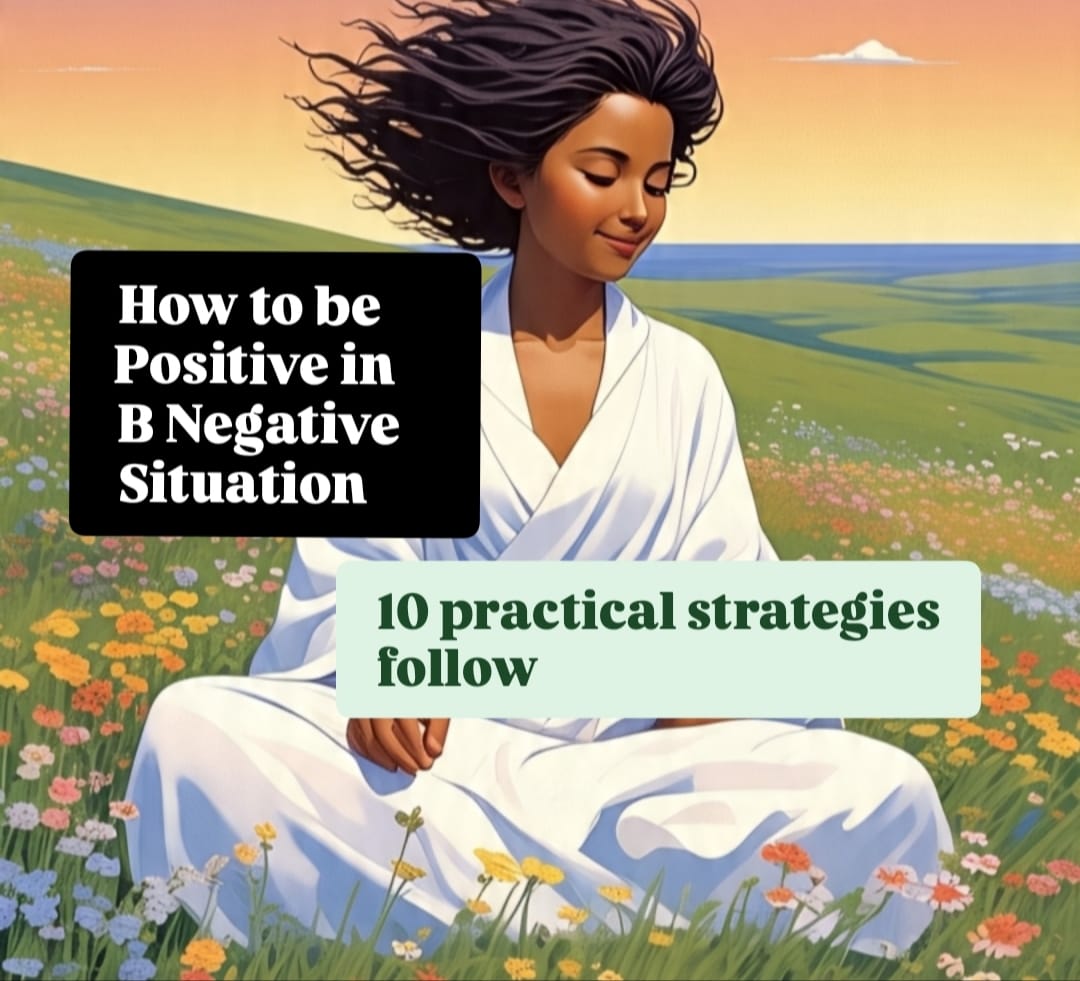stay-positive-when-down
How do we keep ourselves positive in those difficult times of life? When you are stuck in the trap of only negativity . Because Sometimes, anywhere, and at any turn in life, we have to face such situations when everything is going negative in life.
Sometimes facing failure in work, sometimes facing challenges in personal life, or sometimes deteriorating health – at such times we feel that everything is over in life. But, it is important to understand that after every difficult time there is a new morning.
So in today’s lovely article we will talk about how we can train our brain in bad situations of our life so that we can maintain our positivity even in any negative situations of our life. So let’s understand this article . This is not just an attitude, it is a skill that develops with your practice.
According to the research of Mayo Clinic, positive thinking reduces our stress and also improves health. And if we identify our negative thoughts and learn to change them into positive, then we can control our life.
So let’s go friends, in this article we will talk about some practical methods that will help you to maintain your positivity even in every difficulty. Are you ready? Let’s start!

What is the meaning of negative emotion in science:
What happens in the brain ? When we feel anger, sadness, or anxiety for some reason, it is not just an emotional reaction – rather it is a complex response of our brain and body. So friends, let us understand how these negative emotions work in our brain:
1. Alarm system of the brain:
Amygdala is a part of the human brain which processes the emotions of humans. When humans feel any threat or danger, the amygdala immediately reacts and puts the human body in fight or flight mode. This process is automatic and gives humans the ability to react immediately.
2. Negativity Bias:
Our brain naturally focuses more on negative experiences – this is called negativity bias. This is an evolutionary survival mechanism, in which we quickly identify negative things to protect ourselves. This means that we remember a negative experience longer, while positive experiences are quickly forgotten.
3. Role of Neurochemicals
Our emotions depend largely on the chemicals (neurotransmitters) in our brain: Serotonin: This chemical regulates mood. If a person has low serotonin levels, the risk of depression and anxiety may increase.
Dopamine: This is a pleasure and reward chemical. When it is low in a person, they face low motivation and feel joy.
Adrenaline & Cortisol: Stress hormones that are involved in the fight-or-flight response. Their excessive release can cause anxiety and chronic stress.
4. Memory and Emotions Connection
Our past experiences shape our emotions. If you have experienced a traumatic or negative event in the past, its impact can have an impact on your current emotional state. This memory-emotion connection is deep-rooted in our brain and sometimes even works on an unconscious level.
It is important for you to understand that negative emotions are not just a response of our brain, but also a natural and protective mechanism. When we understand and handle them, we can improve our emotional well-being .
10 Practical Strategies to Cultivate Positivity
There are always challenges in life, but we have many ways to keep our mindset positive. So let’s see some practical steps that will help you maintain positivity in every situation:
1. Practice Gratitude
Take out a few minutes every day for yourself and think about what you are grateful for. This small habit will help your mind focus on positive things and your mood will also be uplifted.
2. Set small goals
Divide your big challenges into smaller, achievable goals and celebrate when you achieve them — whether it’s completing a task or giving yourself time. This will let you know your progress and give you motivation.
3. Adopt mindfulness and meditation
Mindfulness means paying attention to your present moment. This practice helps you observe your thoughts without judging them. Meditation helps you understand your emotions better and manage stress. It is very good for your life if you meditate for 10 minutes daily.
4. Spend time with positive people
The people around you influence your mood. So spend time with those people who uplift you, inspire you for your work and motivate you to become the best version of yourself.
5. Learn to accept your emotions
Every person feels negative emotions at some point or the other – anger, sadness, or anxiety. All of this is normal in everyone. It is very important for you to accept your emotions and process them. When you understand your emotions, you are able to handle them better.
6. Take care of physical health
Your physical health is directly connected to your mental health. Exercise for some time daily, eat good food and sleep well. All these will improve your mood and make you feel more energetic.
7. Spend time in nature
Connection with nature gives you peace and clarity. Spending some time walking in the park, gardening or simply sitting in fresh air relaxes your mind and boosts positivity.
8. Give importance to self-care
Make some time for yourself – whether it is reading a good book, listening to your favourite music, or pursuing a hobby. When you make time for yourself, you start prioritising your emotional well-being.
9. Adopt positive affirmations
Say positive things to yourself daily – “I am strong”, “I can face every challenge”, “I am worthy”. These affirmations boost your self-belief and keep you in a positive mindset.
10. Celebrate small achievements
Celebrate every small victory — whether it’s a productive day, a healthy meal, or a positive thought. These celebrations make you feel grateful and positive.
By adopting and implementing these strategies in your daily life, you can change your mindset to a positive one and maintain your positivity in every situation.
Conclusion for your article on “How to Stay Positive in Negative Situations”:
Adopt Positivity in Life : Everyone has such moments in their life when everything seems to be upside down. But remember, after every darkness there is definitely light. If we change our thinking a little, then you can turn even negative situations into a learning opportunity for yourself.
Find Small Happinesses : Every day you find some small things that can make you happy in life. Whether it is a cup of hot tea or talking to a friend. These little joys can make your day better.
Understand yourself : When you love yourself and understand your feelings, you become more resilient. So you have to learn to behave well with yourself.
Remember friends, positivity is like a habit. If you change your thinking a little and find happiness in little things, you can make your life more meaningful and happy.










This is an excellent content with very useful strategies. The way the information is structured makes it easy to understand and apply. It’s clear, practical, and truly adds value for the readers.